8 Foreign Stocks Paying Big Dividends
For many well-known U.S.


Profit and prosper with the best of Kiplinger's advice on investing, taxes, retirement, personal finance and much more. Delivered daily. Enter your email in the box and click Sign Me Up.
You are now subscribed
Your newsletter sign-up was successful
Want to add more newsletters?

Delivered daily
Kiplinger Today
Profit and prosper with the best of Kiplinger's advice on investing, taxes, retirement, personal finance and much more delivered daily. Smart money moves start here.

Sent five days a week
Kiplinger A Step Ahead
Get practical help to make better financial decisions in your everyday life, from spending to savings on top deals.

Delivered daily
Kiplinger Closing Bell
Get today's biggest financial and investing headlines delivered to your inbox every day the U.S. stock market is open.

Sent twice a week
Kiplinger Adviser Intel
Financial pros across the country share best practices and fresh tactics to preserve and grow your wealth.

Delivered weekly
Kiplinger Tax Tips
Trim your federal and state tax bills with practical tax-planning and tax-cutting strategies.

Sent twice a week
Kiplinger Retirement Tips
Your twice-a-week guide to planning and enjoying a financially secure and richly rewarding retirement

Sent bimonthly.
Kiplinger Adviser Angle
Insights for advisers, wealth managers and other financial professionals.

Sent twice a week
Kiplinger Investing Weekly
Your twice-a-week roundup of promising stocks, funds, companies and industries you should consider, ones you should avoid, and why.

Sent weekly for six weeks
Kiplinger Invest for Retirement
Your step-by-step six-part series on how to invest for retirement, from devising a successful strategy to exactly which investments to choose.
For many well-known U.S. dividend stocks, the price of popularity these days is disappointingly low yields.So we went looking abroad for some better yields — and potentially better bargains, given that most foreign stock markets have badly lagged Wall Street in recent years. With the help of research firm Morningstar, we picked eight companies, all with U.S.-traded shares, that are worth a look by domestic dividend-focused investors.
There are some big caveats. One is that investing abroad exposes you to currency risk. If the dollar strengthens against foreign currencies, as it did from mid-2011 through 2015, foreign-stock dividend payouts will be smaller than they appear because dividends paid in weakening foreign currencies translate into fewer dollars. Likewise, a strengthening dollar can lead to a devaluation of the shares themselves. On the flip side, if the dollar weakens, the effect can be to enhance the value of U.S.-traded foreign stocks as well as the dividends they pay U.S. investors.
Keep in mind, too, that accounting policies in many countries differ from those in the U.S. Among other things, companies in some foreign countries need to report their financial results only twice a year, rather than quarterly, as is required in the U.S. If you invest in a foreign stock, you also may end up owing both foreign and U.S. taxes on your dividends. Consult with your tax adviser before you buy a foreign dividend payer.
Picks are listed alphabetically. Share prices and related figures are as of June 22. Unless otherwise indicated, price-earnings ratios are based on estimated earnings for the next 12 months. In instances in which a company pays its dividends in unequal installments, yields are based on dividends paid over the previous 12 months.

America Movil
- Symbol: AMXShare price: $12.19Headquarters: Mexico City, MexicoMarket capitalization: $40 billionDividend yield: 2.5%Price-earnings ratio (based on estimated 2016 earnings): 14
- The business: America Movil is Latin America's biggest telecommunications company, with 284 million wireless customers across the region. Its core market is Mexico, where it controls 70% of both the wireless business and the broadband Internet business. It's also a major player in Argentina, Brazil and Colombia. Total revenue was about $52 billion in 2015.
- The stock's appeal: The share price is near its lowest level since the 2007-09 global market crash. America Movil's profits have plunged over the past two years as competition has intensified. But rivals, including AT&T, which entered Mexico in 2015, are discounting heavily to gain a foothold, a strategy unlikely to be sustainable because of the losses incurred, says Morningstar analyst Michael Hodel.
- The dividend story: The company has been paying dividends twice a year, in July and November. It had previously indicated that the total 2016 dividend would be about 31 cents per U.S.-traded share, split evenly between the two installments. That would give the stock a yield of 2.5% at the current price. The company, in which the family of Mexican billionaire Carlos Slim owns a controlling stake, also has periodically surprised investors with bonus dividends. The last one was in October 2015, worth 35 cents per share.
- SEE ALSO: Great Stocks to Buy While They Are Cheap
In the short-term, the risk of further disappointment is high, in part because of the chance that the peso could continue to weaken against the dollar. For patient investors, however, America Movil is a long-term bet on both the growth of telecom and the economic success of Latin America.

Anheuser-Busch InBev
- Symbol: BUDShare price: $128.45Headquarters: Leuven, BelgiumMarket capitalization: $203.4 billionDividend yield: 3.1%Price-earnings ratio: 32
- The business: Craft beers may be all the rage in the U.S., but brewery giants dominate the business around the globe. And none is bigger than Anheuser-Busch InBev, the company formed when Belgium's InBev bought the U.S. parent of Budweiser in 2008. Now, InBev has struck a deal to buy its main rival, SAB Miller, creating a titan that will own about 30% of the global beer market, with brands that include Bud, Corona, Foster’s, Miller, Peroni and Stella Artois.
- The stock's appeal: Morningstar says that AB InBev's size gives it a huge cost advantage over smaller rivals, such as in procuring ingredients. That edge should grow as the company integrates SAB Miller's operations. AB InBev's long-term investment appeal also is enhanced by its dominance in Latin America and by the expansion into Africa that SAB Miller will bring. In the short term, however, wide swings in foreign currency values, and weakness in economies such as China and Brazil, are taking a toll on AB InBev's sales and earnings.
- The dividend story: At 32 times estimated year-ahead earnings, the stock obviously isn't cheap. But as the business balloons in size with the SAB Miller deal, expect cash flow—and dividends—to rise as well. Despite weak earnings in 2015, AB InBev boosted its annual payout by 21% from 2014 levels. Dividends are paid twice a year, in May and November. The May 2016 payment on U.S.-traded shares was $2.26 per share, up 4% from a year earlier. Based on the past 12 months’ dividends, the stock yields 3.1%.

Banco de Chile
- Symbol: BCHShare price: $62.53Headquarters: Santiago, ChileMarket capitalization: $10 billionDividend yield: 4.7%Price-earnings ratio: 12
- The business: Banco de Chile is one of the biggest banks in what's widely considered to be South America's most successful economy. One key advantage, says Morningstar, is the bank's core of low-cost deposits from Chilean savers. Amid strong loan growth, Banco de Chile's annual revenue has more than doubled since 2007, far exceeding growth at most major U.S. banks since the global financial crisis.
- The stock's appeal: The share price has fallen by more than one-third since peaking at about $96 in 2013. Banco de Chile's earnings have continued to grow over the past few years but at a slowing pace, as Chile's economy has decelerated, owing in part to the ongoing slide in the price of copper, a crucial export. Nonetheless, Morningstar says, Banco de Chile is an "exceptionally efficient operator" that "consistently generates high levels of profitability, which we believe is more than likely to continue." The stock sells for 12 times estimated year-ahead earnings.
- The dividend story: For the past few years, the bank has been paying a dividend once a year, in the spring. This year's payment, made on March 31, was worth about $2.97 per U.S.-traded share — equivalent to a yield of 4.7% at the stock's current price. That is more than double the 2.2% yield for Standard & Poor’s 500-stock index.
- QUIZ: How Well Do You Know Dividends?
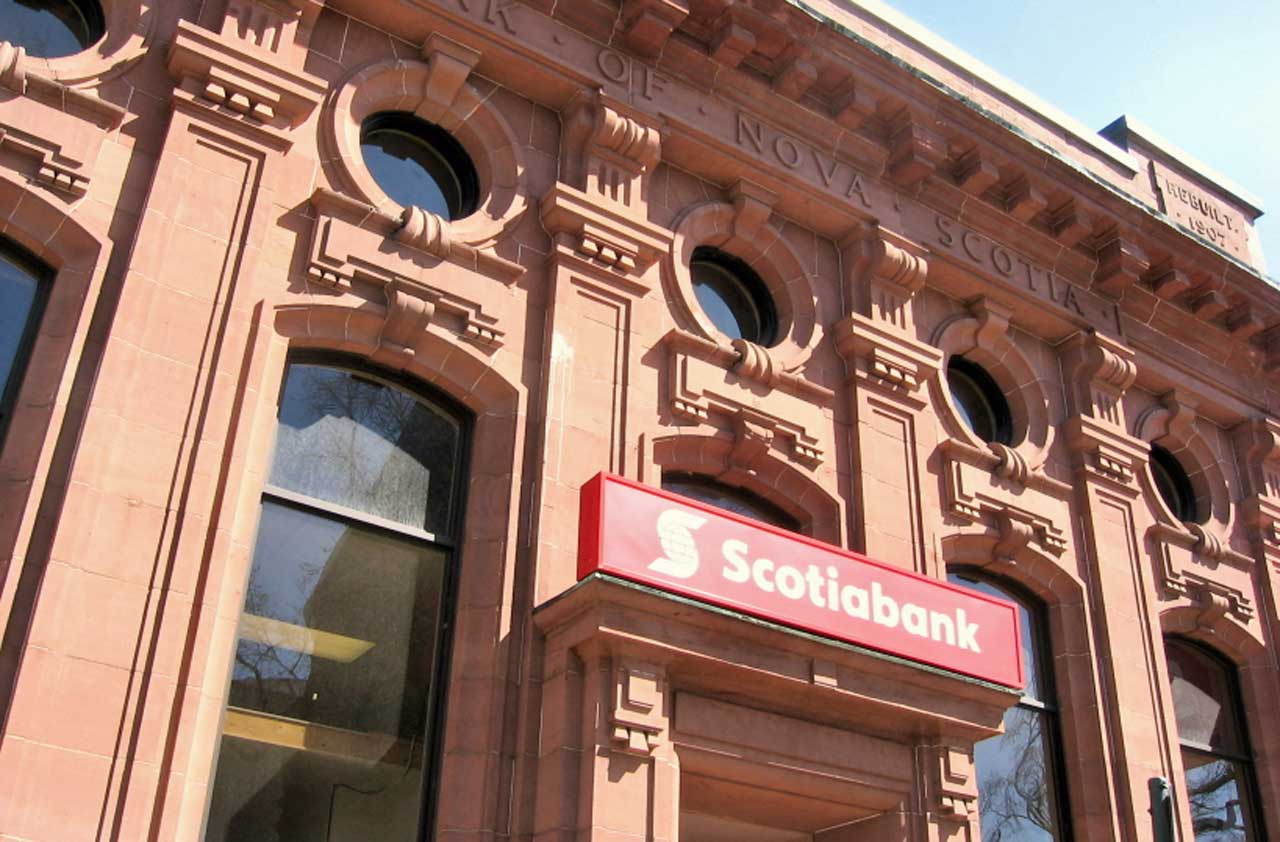
Bank of Nova Scotia
- Symbol: BNSShare price: $50.54Headquarters: Halifax, Nova Scotia, CanadaMarket capitalization: $61 billionDividend yield: 4.3%Price-earnings ratio: 8
- The business: Bank of Nova Scotia is Canada's third-largest bank, with assets of about $660 billion (U.S.). Although the housing bust nearly led to an unraveling of the U.S. banking system, Canada's banks made it through the financial crisis without needing a government bailout. Bank of Nova Scotia's revenues and profits quickly recovered from a 2008 slump to reach new highs by 2010. Besides lending to Canadian consumers and businesses, the bank has diversified by lending abroad, particularly in Latin America.
- The stock's appeal: The shares plunged nearly 50% from their record high in 2014 through early this year. Investors have had two major fears. One is that the collapse of oil prices would result in a surge of defaults among energy-sector borrowers. The other is that Canadian consumers might have overborrowed, especially for housing. But although Bank of Nova Scotia’s profits in the quarter that ended April 30 were down 12% from the same period a year earlier, results exceeded analysts' estimates. And although energy-loan losses rose last quarter, the bank said in its earnings release that it expected them to peak in its current fiscal quarter, which ends July 31. The stock has rebounded from its lows, but the U.S.-traded shares still sell for just a bit more than eight times forecast year-ahead earnings.
- The dividend story: The company pays dividends quarterly and last raised the payout in the summer of 2015, to the current quarterly rate of 72 Canadian cents per share. For the U.S.-traded shares, that translates to about 56 cents per share. The yield on the U.S. shares is 4.3%, well above the average 2.1% yield of U.S. megabanks.
- SEE ALSO: Utility Stocks for Steady Dividends
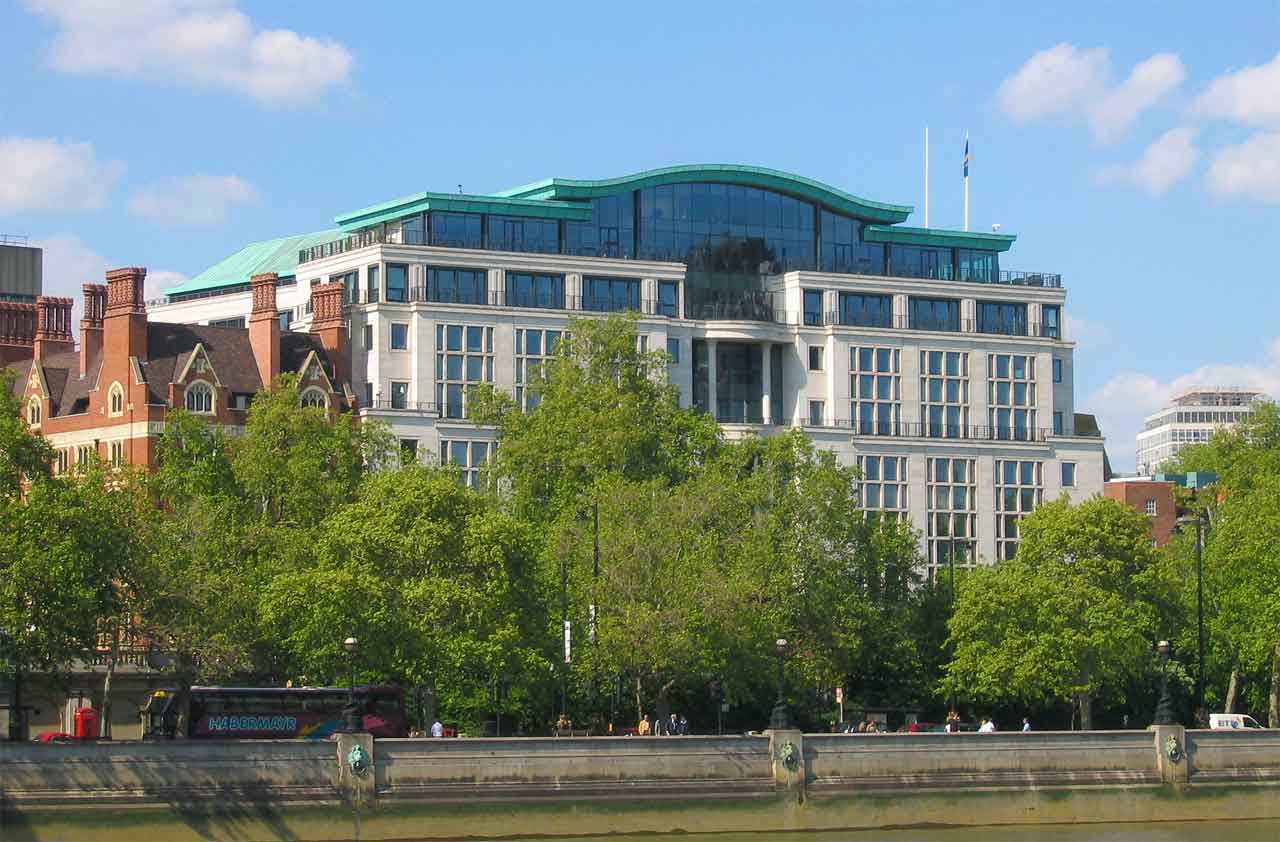
British American Tobacco
- Symbol: BTIShare price: $125.12Headquarters: London, EnglandMarket capitalization: $114.8 billionDividend yield: 3.6%Price-earnings ratio (based on estimated 2016 earnings): 19
- The business: Many investors won't own cigarette stocks on principle. If you don't automatically look askance at the business, you may find British American Tobacco an intriguing income idea. BAT is the world's third-largest cigarette maker, behind China National Tobacco and Philip Morris International. Its brands include Dunhill, Kent and Lucky Strike. BAT also owns 42% of U.S.-based Reynolds American, whose brands include Camel and Newport. BAT also has a 31% stake in India's number-one cigarette firm, ITC Ltd.
- The stock's appeal: British American Tobacco is a bet on tobacco consumption in the developing world. About 58% of the firm's sales are made in emerging markets, where anti-smoking sentiment generally isn't as strong as in the developed world. In 2015, the company's total cigarette volume slipped just 0.5% from 2014, and revenue was up 5.4% excluding foreign currency fluctuations. To drive profit growth, BAT is cutting costs in its traditional cigarette business while launching new tobacco products, Morningstar notes.
- The dividend story: The company has continued to raise its dividend annually in its native currency, the British pound. But as with other foreign firms, the amount paid in dollars can fluctuate based on currency swings. Still, dividends paid on the U.S.-traded shares totaled $4.55 per share in 2015. That's a yield of 3.6% at the current share price, slightly below the 4.0% yield of rival Philip Morris International but above that of Altria, at 3.4%, and Reynolds American, at 3.3%.

Compass Group
- Symbol: CMPGYShare price: $19.18Headquarters: Chertsey, EnglandMarket capitalization: $31.8 billionDividend yield: 2.3%Price-earnings ratio (based on estimated 2016 earnings): 22
- The business: Compass is one of the world's largest providers of food services to businesses and institutions, with $26 billion in annual sales. Profits hit a record in 2015 as the company continued to benefit from the trend of businesses, hospitals, colleges and other entities outsourcing more food-service functions, such as employee cafeterias. Compass operates in 50 countries.
- The stock's appeal: The share price has risen more than fourfold since 2009. Morningstar says Compass's global reach "makes it one of the few vendors that can efficiently fulfill the needs of multinational companies with diverse locations." The company has a track record of keeping clients satisfied: Its contract retention rate has averaged 94% over the past 10 years. Despite the weak global economy, Compass recorded healthy growth in the six-month period that ended March 31, as per-share profit rose 9.7% on a 6.7% gain in sales.
- The dividend story: The company pays dividends twice a year, in March and August. The August payment for this year has already been set, at about 16 cents per U.S.-traded share. Combined with the March payment of 27.6 cents, the 2016 total will be about 43.6 cents, giving the stock a yield of 2.3% at the current share price. The annual payout has risen 28% since 2013. What's more, Compass surprised shareholders with a $1.01-per-share bonus dividend in 2014. "Returns to shareholders continue to be an integral part of our business model," the company said in its 2015 annual report.
- SEE ALSO: Stocks Paying Dividends for More than 100 Years
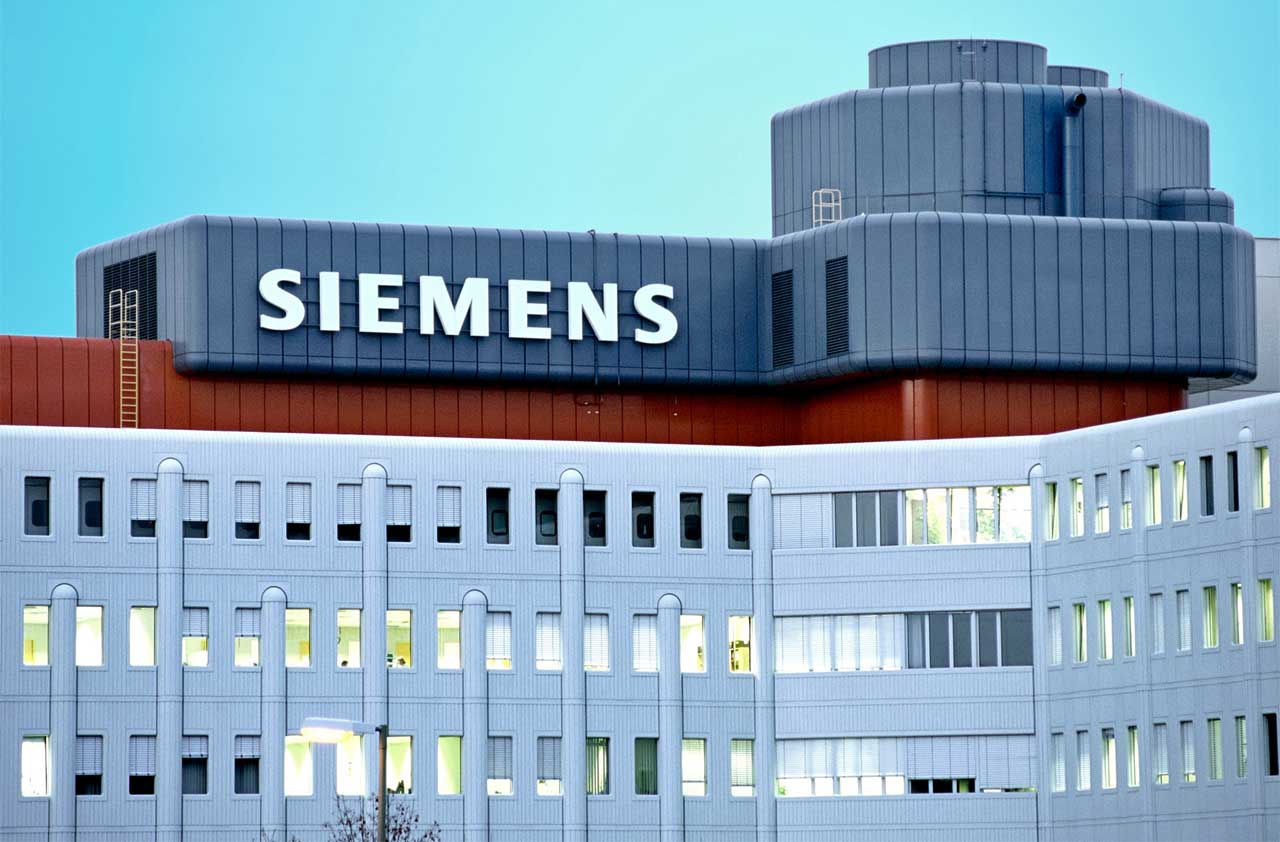
Siemens
- Symbol: SIEGYShare price: $108.37Headquarters: Munich, GermanyMarket capitalization: $86.7 billionDividend yield: 3.5%Price-earnings ratio (based on estimated earnings for the fiscal year that ends in September 2016): 14
- The business: Siemens has long been considered Germany's General Electric, a huge conglomerate spanning a host of manufacturing and technology businesses. Its products include massive gas and steam turbines, wind power systems, medical-imaging equipment, factory-automation systems and energy-management controls for buildings.
- The stock's appeal: Like GE, Siemens has struggled to grow amid the anemic global economy that has followed the financial crisis. Annual revenue has mostly been stuck at about 75 billion euros since 2009 (about $84.6 billion based on the current euro-dollar exchange rate), and the price of Siemens's U.S.-traded shares has made no net progress in nine years. But that may present an opportunity: The company now is shifting from emphasizing revenue growth across its disparate businesses to focusing investment in sectors that show the best profit growth potential, such as factory automation, Morningstar says. Research firm S&P Capital IQ estimates that 18% of Siemens's sales currently generate no earnings. So the stock is a bet that the company finally will get its business mix right.
- The dividend story: Despite uninspiring sales growth since 2009, Siemens has generated enough free cash flow (cash profits after the capital outlays necessary to maintain the business) to fund hefty dividends. The company pays dividends on its U.S.-traded shares once a year, in the winter. The most recent payment, on February 3, was $3.81 per U.S. share, up from $3.75 a year earlier and equivalent to a 3.5% yield at the stock's current price. That's well above GE's yield of 3.0% and the 2.0% yield of Honeywell, another U.S. rival.
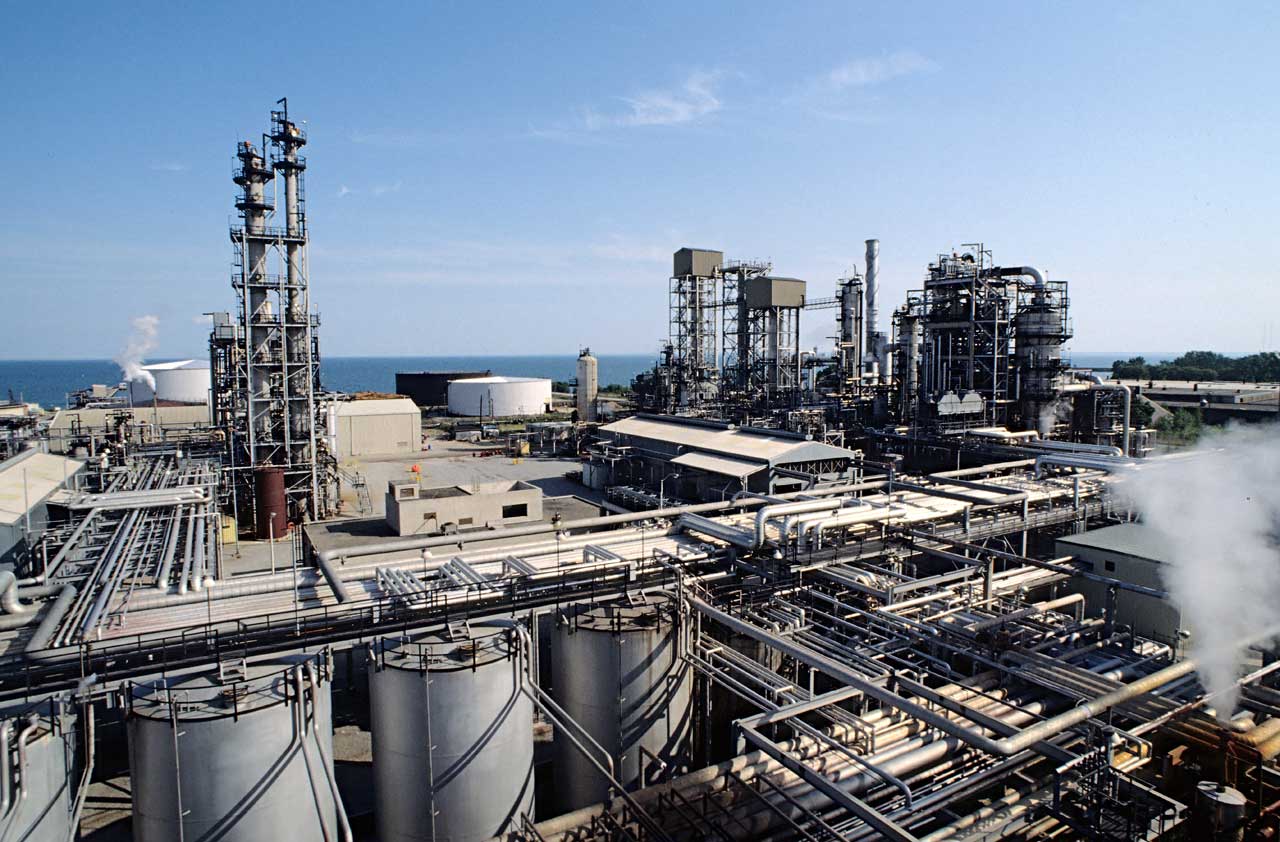
Suncor Energy
- Symbol: SUShare price: $27.11Headquarters: Calgary, Alberta, CanadaMarket capitalization: $42.7 billionDividend yield: 3.4%Price-earnings ratio: Not meaningful
- The business: Suncor is Canada's biggest energy company by revenue and has been the leader in extracting oil from the huge tar sands region in Alberta. As an integrated energy company, Suncor is involved in all aspects of the business, from producing to refining to distributing. That diversification limited the company’s losses as crude prices plummeted in 2014 and 2015. Analysts expect more red ink in the current quarter but see the company returning to profitability for the rest of the year.
- The stock's appeal: Like all energy stocks, Suncor has been hammered by crude's price plunge. The shares dived from about $43 in mid-2014 to a seven-year low of $18.71 early this year. As crude has rebounded, the stock has gotten a bounce, but its price is still no higher than it was in mid-2009. If you believe that oil prices will head higher in the next few years — admittedly, a big "if" – Suncor will likely be a winner. As brokerage Barclays Capital puts it, Suncor's rich tar sands resources make it "one of the world's most attractive major oil companies."
- The dividend story: Even as the company has incurred losses from crude's slump, Suncor's finances have been strong enough to allow the firm to continue to raise its dividend. The annualized payout now is $1.16 per share Canadian. For the U.S.-traded shares, that works out to about 23 cents per share each quarter, or about a 3.4% yield at today’s share price. Warren Buffett, who likes dividends, likes Suncor: At last report, Berkshire Hathaway, the giant conglomerate that he runs, owned 30 million shares, or 1.9%, of Suncor.
- QUIZ: How Well Do You REALLY Know Warren Buffett?
Profit and prosper with the best of Kiplinger's advice on investing, taxes, retirement, personal finance and much more. Delivered daily. Enter your email in the box and click Sign Me Up.

-
 5 Vince Lombardi Quotes Retirees Should Live By
5 Vince Lombardi Quotes Retirees Should Live ByThe iconic football coach's philosophy can help retirees win at the game of life.
-
 The $200,000 Olympic 'Pension' is a Retirement Game-Changer for Team USA
The $200,000 Olympic 'Pension' is a Retirement Game-Changer for Team USAThe donation by financier Ross Stevens is meant to be a "retirement program" for Team USA Olympic and Paralympic athletes.
-
 10 Cheapest Places to Live in Colorado
10 Cheapest Places to Live in ColoradoProperty Tax Looking for a cozy cabin near the slopes? These Colorado counties combine reasonable house prices with the state's lowest property tax bills.
-
 What Fed Rate Cuts Mean For Fixed-Income Investors
What Fed Rate Cuts Mean For Fixed-Income InvestorsThe Fed's rate-cutting campaign has the fixed-income market set for an encore of Q4 2024.
-
 The Most Tax-Friendly States for Investing in 2025 (Hint: There Are Two)
The Most Tax-Friendly States for Investing in 2025 (Hint: There Are Two)State Taxes Living in one of these places could lower your 2025 investment taxes — especially if you invest in real estate.
-
 The Final Countdown for Retirees with Investment Income
The Final Countdown for Retirees with Investment IncomeRetirement Tax Don’t assume Social Security withholding is enough. Some retirement income may require a quarterly estimated tax payment by the September 15 deadline.
-
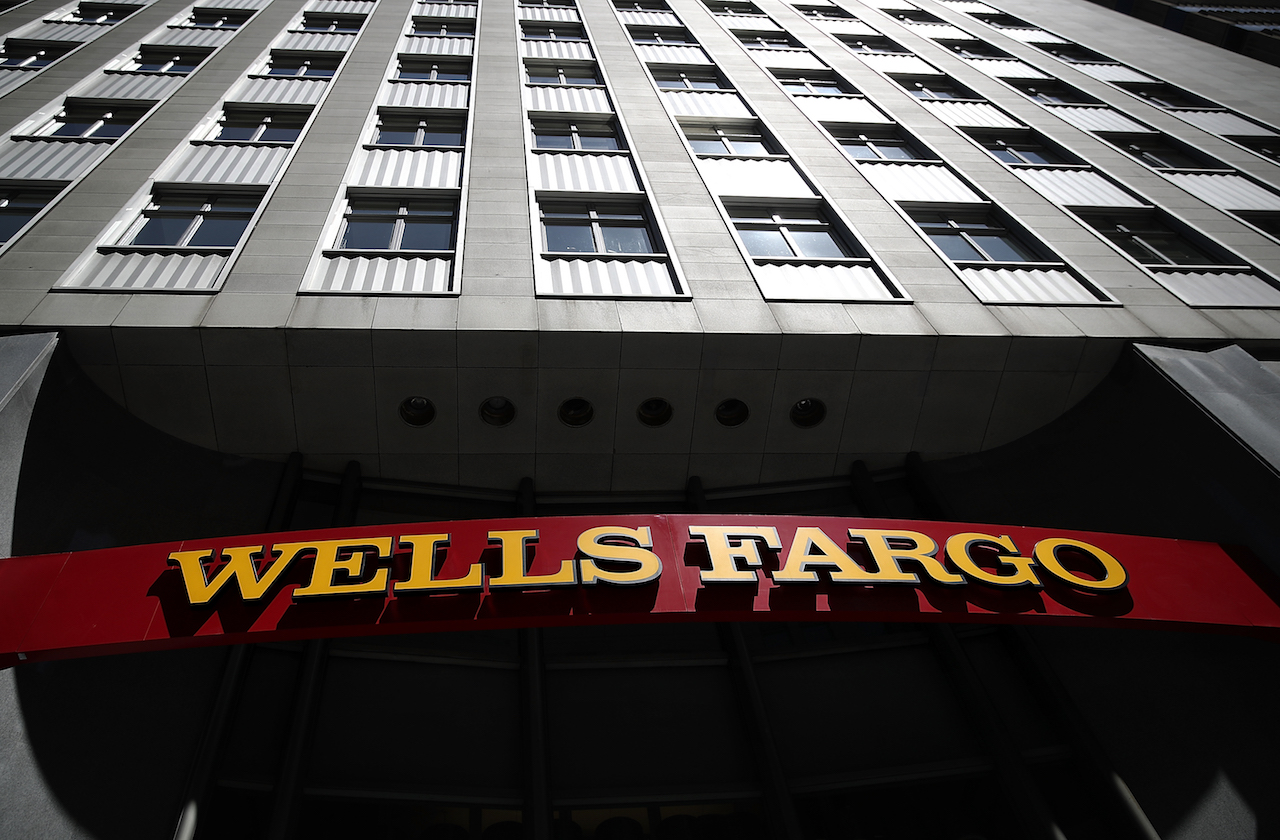 Why Wells Fargo's Revenue Miss Isn't Worrying Wall Street
Why Wells Fargo's Revenue Miss Isn't Worrying Wall StreetWells Fargo is one of the best S&P 500 stocks Wednesday even after the big bank's top-line miss. Here's what you need to know.
-
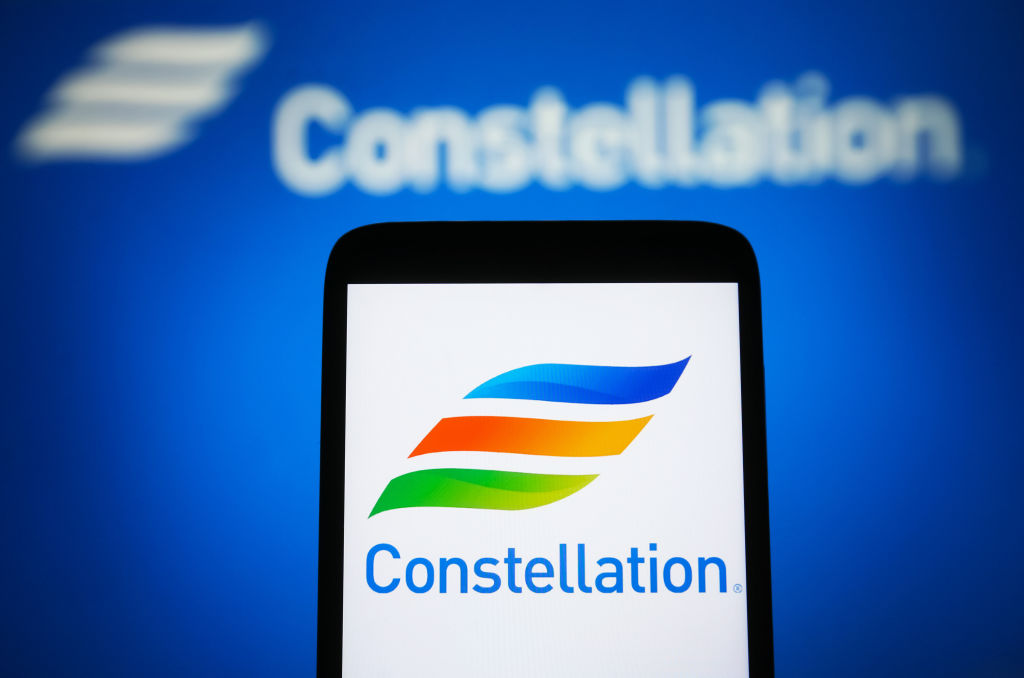 Constellation Energy Stock Soars on Its $26 Billion Buy. Here's Why Wall Street Likes the Deal
Constellation Energy Stock Soars on Its $26 Billion Buy. Here's Why Wall Street Likes the DealConstellation Energy is one of the best S&P 500 stocks Friday after the utility said it will buy Calpine in a cash-and-stock deal valued at $26 billion.
-
 The 24 Cheapest Places To Retire in the US
The 24 Cheapest Places To Retire in the USWhen you're trying to balance a fixed income with an enjoyable retirement, the cost of living is a crucial factor to consider. Is your city the best?
-
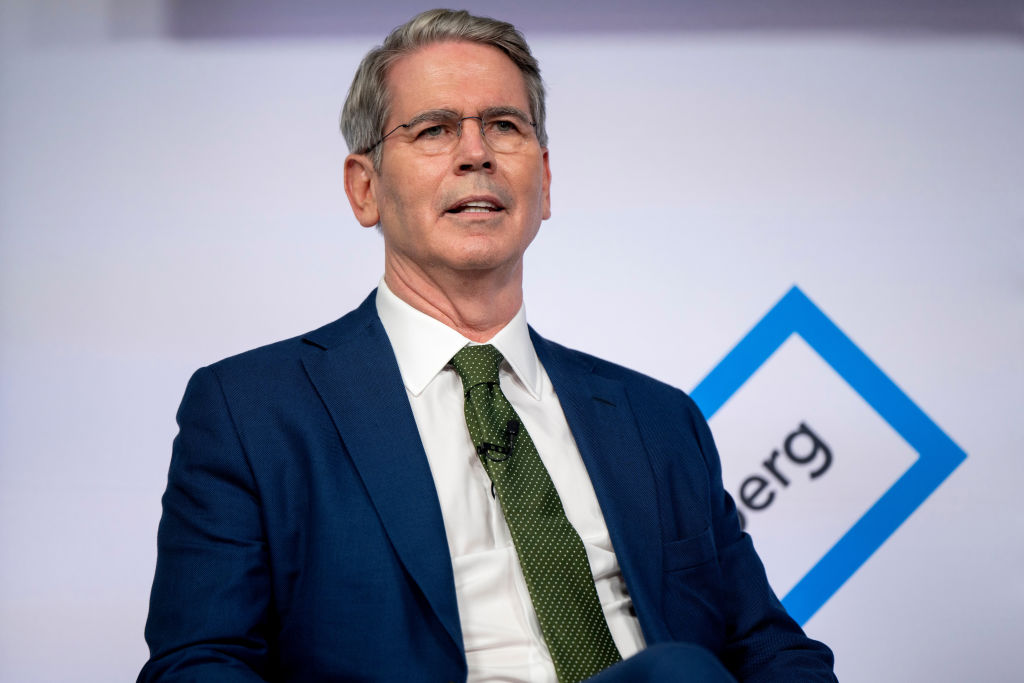 What Scott Bessent's Treasury Secretary Nomination Means for Investors
What Scott Bessent's Treasury Secretary Nomination Means for InvestorsMarkets are reacting positively to Trump's nomination of Scott Bessent for Treasury secretary. Here's why.
-
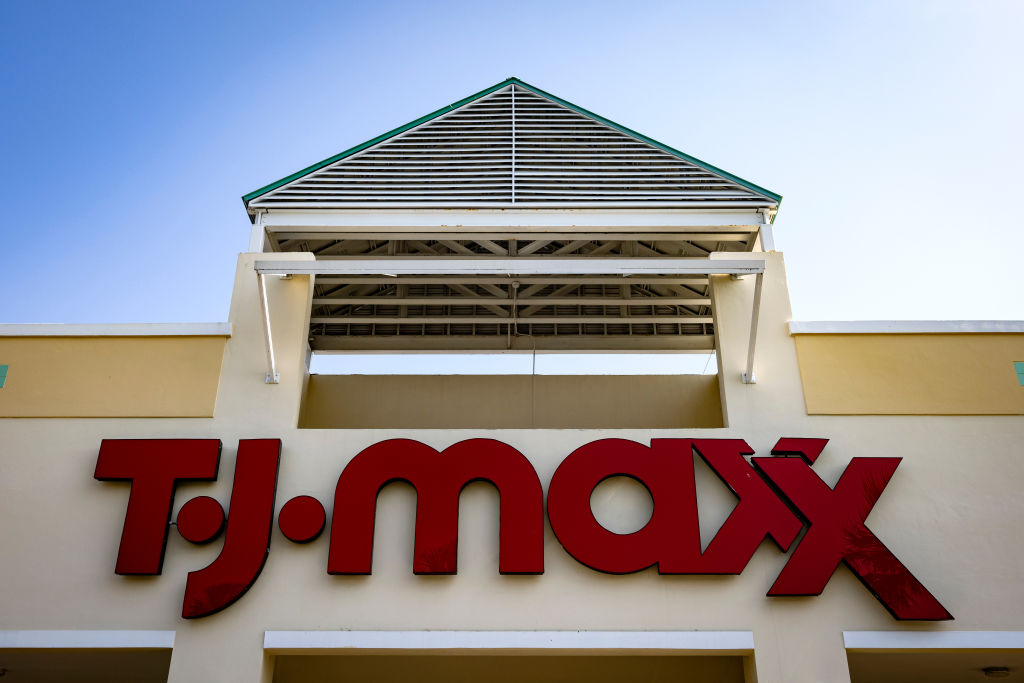 TJX Stock: Wall Street Stays Bullish After Earnings
TJX Stock: Wall Street Stays Bullish After EarningsTJX stock is trading lower Wednesday despite the TJ Maxx owner's beat-and-raise quarter, but analysts aren't worried. Here's why.
